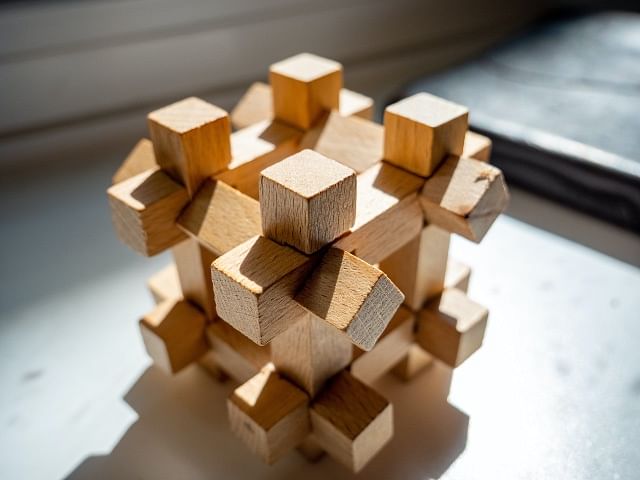Do Puzzles Make You Smarter? If So, Then In What Way?
What exactly are the benefits of puzzles to the human brain? Do they really help stave off memory loss, Alzheimers and even old age? Let’s talk about that.

Scientific Research
Whilst writing this article, I Googled a lot of high quality research on brain function and puzzles. There is a lot out there on how developing problem solving skills can improve your connections between brain cells. Much of the research shows that the media hype for improved brain function is not quite as optimistic as the media claims - in fact a lot of it is quite ambiguous and even contradictory.
In Brain and Cognition (Vol 46, 2001 pp. 95-179) proves that older people perform considerably worse than younger folk on the Towers of Hanoi puzzle. The Journal of Experimental Psychology (Vol 128, 1999 pp. 131-164) could find no evidence that crossword puzzles improve cognition or mental speed associated with an increase in age. Contrarily, the Psychology of Aging (Vol 15, 2000, pp. 297-312) showed that experience with crosswords does seem to reduce the common negative impact on memory and speed tasks normally associated with old age.
These are “proper” pieces of research in established scientific publications. So if they can’t agree on what is what, how do we know what the real impact is?
Let’s start at the beginning.
Anyone with children will know, because they’ll have seen it, how simple jigsaw puzzles are a very important part of a child’s development. They will improve your visual brain, improve your short term memory, improve your hand eye coordination and more. Think of it as a mental workout. Initially, trial and error will be used to solve the simple puzzles, then as a kid’s cognitive ability improves they will understand how the finished puzzle should look and so be able to solve the puzzle more quickly. And with less guess-work. This helps impact other important areas of brain development. It’s the seeds we’re sewing that will eventually help with more adult tasks such as map-reading, learning a new language or even learning card tricks. And Tetris, of course.
Problem Solving
Puzzles help form your problem-solving brain. They help you create a hypothesis and test theories. Is it best to approach the brain teaser from this way or that way? What do you do when you’re stuck? How can you look at a puzzle from a different angle - metaphorically or physically.
Detail
Puzzles also work on your eye for detail. We’re teaching our eyes - and brains - to look for tiny clues. Small, seemingly insignificant parts of a puzzle can end up being the key to solving them. This can be applied to so many aspects of adult life.
Left & Right Side
When you work on any kind of puzzle it exercises both sides of your brain. The left side is typically associated with logic. This means it likes a linear approach to solving a problem. Conversely, the right side is all about creativity and intuition. You need both sides of the brain to work together to solve almost every type of puzzle out there.
Relaxing
It’s not just the cerebral workout puzzles provide that is a benefit. They also help you relax! In fact, often times they’re just as useful as things like meditation in helping you achieve a calm mind. This is why so many puzzles are marketed as MINDFUL TOYS. It’s simple to let go of daily stress and worries when you’re engrossed in the latest JAPANESE PUZZLE BOX or TAVERN PUZZLE. This happens because your mind set swops from a beta state to an alpha state. This helps your mood by releasing Dopamine (a mood-enhancing chemical) every time you get closer to solving a puzzle.
So whether scientific research agrees or not, we think that puzzles do offer clear benefits to your cognitive abilities, mental health and general sense of wellbeing.
See our range of puzzles
Useful links for our magic products

